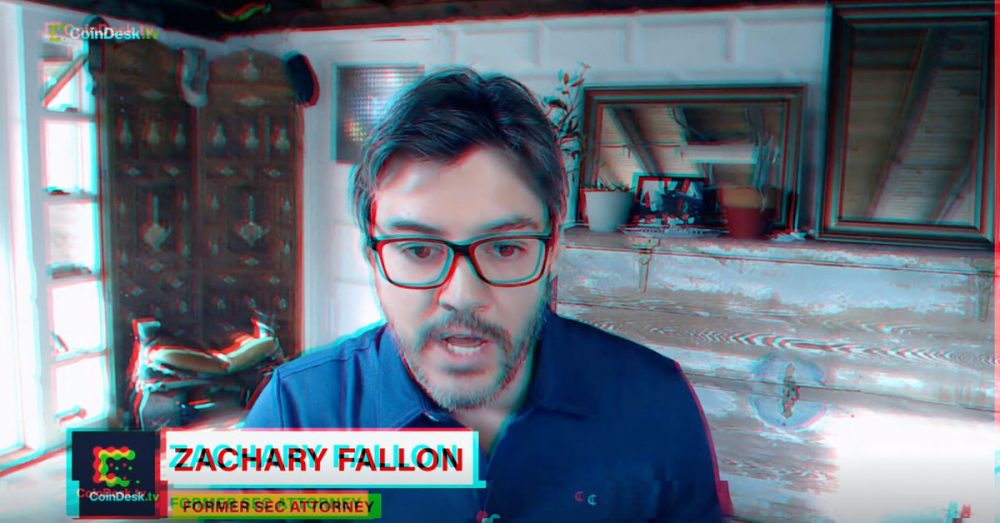The Securities and Exchange Commission’s (SEC) shutdown of crypto exchange Kraken’s U.S. staking-as-a-service business may certainly lead to a wider industry crackdown. However, “this is not a condemnation of staking writ large,” said Zachary Fallon, a former special adviser to the regulator’s general counsel and previously senior special counsel to the director of the SEC’s Division of Corporate Finance.
Rather, “this is a condemnation of Kraken’s staking program specifically,” Fallon said on CoinDesk TV’s “First Mover.”
On Thursday, the SEC announced it had settled with the San Francisco-based Kraken, which will “immediately” end its crypto staking-as-a-service platform for U.S. customers and pay a $30 million fine.
The exchange did not deny nor admit to any wrongdoing, Fallon noted.
He said the SEC’s move is an “obvious shot across the bow to others” that offer staking services to retail users in the U.S. However, he said, the circumstances might have been different had Kraken’s staking program been “merely a technological connective tissue to underlying protocol.”
Instead, “what Kraken appears to have done is essentially run a program on top of what the underlying protocol itself spits out,” he said.
According to the regulator’s press release, “When investors provide tokens to staking-as-a-service providers, they lose control of those tokens and take on risks associated with those platforms, with very little protection.”
Proof-of-stake is a method of maintaining integrity in a blockchain by ensuring users of a cryptocurrency can’t mint coins they didn’t earn. Proof-of-stake relies on “proof” of how much of a “stake” users have in a blockchain, such as Ethereum. Some, however, delegate their node operations to a third-party operator, such as Kraken.
According to Fallon, the SEC has a habit of announcing an enforcement action and expecting the crypto industry to fall into line rather than providing guidelines for legal operation.
“We’ve seen this over the years” through such actions as the initial coin offering (ICO) crackdown, he said.
When it comes to crypto, “the SEC relies on a facts- and circumstances-based test to assert its oversight.”
At some point “the SEC makes its points and the rest is up to the private markets to sort of fall into compliance or to rely on different facts and circumstances to have a different result than to take a different position,” Fallon said.
But the downside, he said, is that a particular action could be limited to those facts and circumstances.
“To the extent that they’re different facts, different circumstances, you might have a different result,” Fallon said.
For now, he says, the industry should “stay tuned.”







